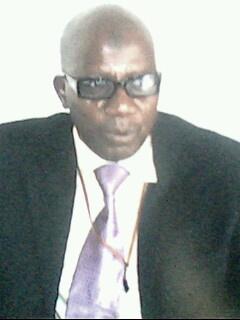Kogi Central Holds One-Day Mini Confab, Ahead Of National Conference: Advocates Power Rotation, Revival Of Ajaokuta/Itape

Kogi state Central Senatorial District, made up of Ebira, Uku, Ogori, and other tribes, today, held a mini conference to collate the general views of the various interest groups to guide the delegates from the Zone to the main National Conference due to be inaugurated by President Goodluck Jonathan early next week.
The mini conference was convened by the representative of Kogi state to the National Confab, Hajiya Maryam Ladi Ibrahim, who is also chairman of the Board of the Financial Reporting Council of Nigeria (FRCN) and was supported by four others that are representing various groups at the National Confab. They are the Deputy Vice Chancellor of the Kogi State University, Anyigba, Professor Mariyetu Tenuche; Secretary General of the Trade Union Congress of Nigeria (TUCN), Barrister Musa Lawal; former deputy governor of Kogi state, Chief Phillip Salawu and Stephen Aluko from Ogori Magongo.
At the mini conference held at the Federal College of Education (FCE) in Okene, various None Governmental Organisations (NGO), interest groups and elders presented their positions which they wanted the National Conference to address through their representatives.
The contributed spoke with consensus about the need to embed rotation of executive powers around the ethnic groups in the country and within the states and local governments.
They arrived at a conclusion that it is only power rotation that would stop the agitation for the creation of more states by, mostly, marginalised ethnic groups.
The Kogi Central mini confab also came up with a strong voice asking for the completion and full operation of the Ajaokuta Steel and Itape Iron Ore projects, noting that it would not only boost the industrial advancement of the country, but create thousands of job opportunity for Nigerians.
The umbrella body of the Ebira people, Ebiral Peoples Association (EPA) made it clear, through its President, Dr. Abdulrahman Adeiza, that the federal government should rise up and raise about N83 Billion which Ajaokuta Steel and Itape Iron Ore are said to be needed to get back on their feets.
It was also generally agreed that people in the Kogi Central are no longer comfortable with the People from the Eastern part of the country because of the latter’s domineering posture regarding the position of governorship, saying that it is only the power rotation that would resolve the love-hate between the two.
“We will prefer to have a separate state created for us in Kogi Central or be merged with the Federal Capital Territory (FCT) rather than continuing to face marginalisation and humiliation from Igala in the present dispensation,” the mini conference agreed.
It also talked about ways to effectively fight corruption in the country, the expensive nature of running democracy and a proposal for a single national assembly with part time membership; devolution of powers, resource control and single tenure of office for President and governors either for five years or six years among others.











